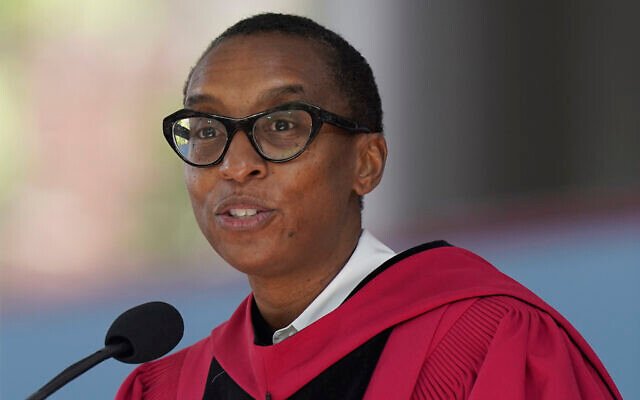Harvard President Claudine Gay made a surprising announcement on Tuesday, revealing her decision to resign from her position just six months into her tenure. The move follows a series of challenges, including accusations of plagiarism in her academic work and intense scrutiny from congressional lawmakers regarding her response to antisemitism on the Harvard campus during the Israel-Hamas war.
In a statement, Gay expressed the difficulty of her decision, stating, “This is not a decision I came to easily.” She highlighted consultations with members of the Harvard Corporation and emphasized that her resignation is in the best interests of Harvard, allowing the community to navigate the challenges it faces with a focus on the institution rather than any individual.
As the first Black president of Harvard, Gay’s short tenure has been marked by both accomplishments and controversies. She assumed the presidency over the summer, but her term is now the shortest in Harvard’s history. The decision to resign came after allegations of plagiarism in her academic papers surfaced, contributing to a wave of criticism.
Gay acknowledged the distress caused by doubts regarding her commitment to confronting hate and upholding scholarly rigor. She mentioned the personal attacks and threats fueled by racial animus that she had faced, further emphasizing the challenging nature of her experience.
The Harvard Corporation, in its statement, acknowledged Gay’s missteps and expressed support for her resilience in the face of sustained attacks, which included racist vitriol directed at her through emails and phone calls.
Following Gay’s resignation, Alan M. Garber, the university’s provost and chief academic officer, will serve as interim president, according to the Harvard Corporation’s statement.
New York Republican Rep. Elise Stefanik, who played a prominent role in questioning Gay during a congressional hearing in December, referred to the resignation as “long overdue.” Stefanik’s scrutiny, which became a viral video on social media, focused on issues of antisemitism on campus.
Stefanik also hinted at potential resignations within the Harvard Corporation Board, accusing them of being complicit in covering up a scandal that damaged Harvard’s academic integrity and moral leadership.
The resignation came after concerns of academic plagiarism were raised, with anonymous complaints prompting an investigation by the Harvard Corporation. Although the review found no evidence of intentional deception or recklessness, it did identify instances where Gay’s work failed to adhere to proper citation standards.
Gay, who received her Ph.D. from Harvard in 1998, had requested corrections to two articles, acknowledging instances of inadequate citation. Additionally, anonymous complaints regarding her dissertation led to corrections being made to add citations or quotations in three places.
Despite the Harvard Corporation’s initial support following the congressional hearing, calls for Gay’s resignation gained momentum, with lawmakers and alumni expressing dissatisfaction with her responses and actions. The controversy surrounding her leadership reached a critical point, prompting the House Education and the Workforce Committee to announce a review of Harvard’s handling of the plagiarism accusations.
The resignation of Claudine Gay, amidst allegations of plagiarism and criticisms related to her response to antisemitism, marks a significant moment in Harvard’s history and raises broader questions about the challenges faced by leaders in navigating complex issues within academic institutions. As the university moves forward under interim leadership, the focus remains on addressing these challenges and maintaining Harvard’s commitment to academic excellence and inclusivity.
